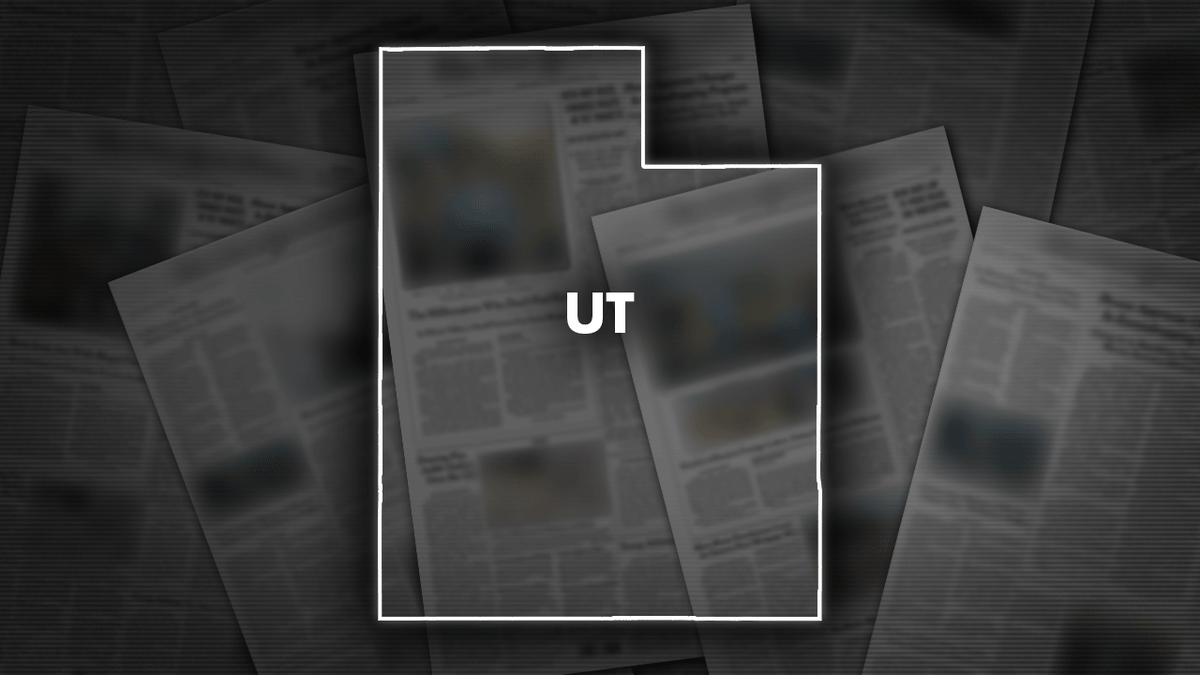Fox News Flash top headlines for November 4
Fox News Flash top headlines are here. Check out what's clicking on Foxnews.com.
Utah's politics borrow a great deal from the state's predominant religion, The Church of Jesus Christ of Latter-day Saints. Most of its population and a vast majority of its politicians are members of the faith.
Republicans hold every statewide office, all four seats in the U.S. House of Representatives and supermajorities in the state House and Senate.
Of note, though: Polling of members of the faith has shown former President Donald Trump generally commands less robust support than other prominent GOP politicians. Four years ago, Utah elected Mitt Romney to the U.S. Senate, proving a path to victory exists for Republicans willing to criticize Trump, even in deeply red states.
In this year’s midterms, Democrat-backed independent Evan McMullin is hoping to harness anti-Trump sentiment to unseat Sen. Mike Lee, a second-term Republican first elected in the 2010 Tea Party wave.
Lee has evolved from a one-time critic of Trump to one of his staunchest supporters. McMullin has hammered Lee for texts messages he exchanged with White House Chief of Staff Mark Meadows in November 2020, where the two discuss efforts to challenge President Joe Biden’s victory. Lee has insisted he was merely researching his role in certifying the results in the lead up to Jan. 6.
In prior elections, Utah’s 4th Congressional District has also been a key contest for both parties jockeying for control of Washington. However, political maps approved by the Republican-controlled Legislature during last year’s once-in-a-decade redistricting process added Republicans and subtracted Democrats from the historic swing district.
Though Utah has experienced massive population growth much like neighboring Colorado, Nevada and Arizona, it has avoided the political transformations underway in those states, where Democrats have made inroads and won major electoral victories in recent years. Salt Lake City and some surrounding suburbs lean toward the Democratic Party, but Republicans dominate most of the state and statewide races have not been competitive.
Here’s a look at what to expect on election night:
Election Night
Polls close at 8 p.m. local time (10 p.m. ET).
How Utah Votes

Utah Republicans are seeking to defend a U.S. Senate seat and four U.S. House seats. All eyes are on Democrat-backed independent Evan McMullin hoping to unseat GOP Sen. Mike Lee.
Utah is the only Republican-led state to send all active voters mail-in ballots in the weeks leading up to each election. Though many counties conducted "all mail elections" throughout the last decade, Utah switched to a statewide vote-by-mail program in 2019. The choice is overwhelmingly popular, with 92% of the electorate casting mail ballots in 2020.
It’s unclear how nationwide skepticism toward voting by-mail will affect turnout in Utah. A fringe group of Republicans in the Legislature proposed ending vote by-mail earlier this year, yet the idea failed to gain traction or advance out of committee after Republican Gov. Spencer Cox and most lawmakers opposed it.
Ballots can be returned to polling places or ballot drop boxes set up throughout the state, or dropped in the mail. Utah also offers in-person voting in the two weeks leading up to and on Election Day. Eligible voters can register in person at early voting locations or at polling places on Election Day.
Partial results typically start being reported immediately after polls close, in batches. They’re updated throughout election night and in the following days. It’s common for reporting not to be complete until days later.
Decision Notes
Utah’s population is centered along the Wasatch Front, in the corridor along the Wasatch Mountain Range from Ogden in the north to Provo in the south. This is a reliably Republican state.
The race calling challenge will likely revolve around the U.S. Senate race and what happens in Salt Lake County. It’s the most populous county and the one where Democrats and left-leaning independents cluster.
But it’s also a county that reports votes slowly. In 2020, 40% of the county’s votes weren’t counted until after Election Day. If the Lee-McMullin race is close in the first hours after polls close, that’s likely where it will be decided, and it may not be called until days later.
The AP may call a statewide or U.S. House race in which the margin between the top two candidates is 0.5% or less, if we determine the lead is too large for a recount to change the outcome.
The AP will not call down-ballot races on election night if the margin between the top two candidates is less than 2% or if the leading candidate is within 2% of the 50% runoff threshold. The AP will revisit those races later in the week to confirm there aren’t enough outstanding votes left to count that could change the outcome.
Utah law allows for mandatory recounts if the difference between the two candidates is less than or equal to one quarter of one percent of the total number of votes cast, or if the gap is less than or equal to 400 votes.
What Else Should I Know?
CLICK HERE TO GET THE FOX NEWS APP
Republicans nationwide cast doubt on the security of mail-in ballots, yet Utah lawmakers elected to maintain the state’s universal vote-by-mail system. However, they passed several measures intended to address distrust over election security.
Since the 2020 election, the Republican-majority statehouse passed measures to put ballot drop boxes under 24-hour surveillance and to standardize the reporting schedule for county clerks to release the number of ballots left to be counted daily. They also tightened voter ID laws and made it easier for people to opt out of being sent mail ballots.





